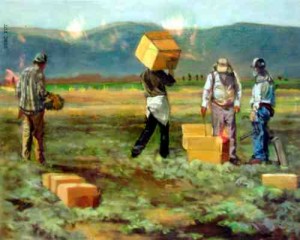Review by Martha Quillen
Historical Novel – February 2007 – Colorado Central Magazine
The Vote
by Sybil Downing
Published in 2006 by University of New Mexico Press
ISBN-10: 0-8263-3857-7
IN THE VOTE, Coloradan Kate Brennan gets arrested in Washington D.C., becomes a suffragette, and then goes to work for the National Woman’s Party (NWP) handing out brochures and stuffing envelopes.
Kate’s mother, a Denver socialite and woman to be reckoned with, strongly objects to her daughter’s pursuits.
But when Kate returns to Colorado to advance NWP goals there, her sister joins her, and Alice Paul and Lucy Burns, the actual historical founders of the NWP (two out of many characters in The Vote who are real rather than fictional) are impressed with Kate’s passion.
Mary Daly, on the other hand, a maid and fellow suffragette, resents Kate, whose parents she once worked for, because she figures Kate doesn’t have a clue about how hard things are for working women. Eventually, however, Mary and Kate come to love and admire one another. Or at least that’s what the narrative contends. But the reader might have a little trouble believing it, since character development is not a notable element in The Vote.
This novel reminds me of one of those children’s biographies I used to love in grade school. I remember reading about Dolly Madison, a fearless heroine who didn’t panic when the British attacked, and George Washington, a young man so honest he admitted to chopping down his father’s favorite cherry tree. Those characters were introduced to teach the reader history, and as such, they were neither well-developed nor particularly realistic.
And so it goes with Kate Brennan.
Author Downing introduces a host of conflicts which could have made Kate into a meatier heroine and The Vote into a more timeless and gripping historical novel. But Downing never really grapples with the bigger themes she introduces — such as the tension between generations (Kate and her parents); the animosity between the rich and the poor (as it played out between suffragette leaders and the working-class women they purportedly championed); or the role of women (which one would expect to be a natural preoccupation in a novel about suffragettes).
ALL OF THESE timeless topics and many others pop up in The Vote, but Downing races right past them. Instead, she focuses on some of the political machinations the NWP employed in 1918 to get the 19th Amendment to the U.S. Constitution passed.
Downing’s theme takes us to Denver, home of U.S. Senator Shafroth, a real person, who in this book is a personal friend of Kate Brennan’s fictional parents.
In that era, many states, including Colorado, had already passed legislation to let women vote, and Shafroth (along with many of his fellow Democrats) supported a national amendment. But the Democratic Party was split on the issue.
Southern Democrats castigated the proposed amendment as an evil threat to state’s rights. And thus even pro-amendment Democrats tended to be unwilling to invest their political capital on suffrage since it was unlikely to pass in a Democratically controlled congress. (Much like Democrats in recent years have repeatedly failed to push for national health care — despite their vocal support — because it, too, is a divisive issue, which can be bartered away for votes on legislation with better chances of passing.)
Therefore in 1918 the National Woman’s Party supported Republicans because they had united behind the suffrage amendment. But that meant some of Colorado’s pro-Union Democrats felt they had to choose between workers and women.
Sybil Downing’s book does a fair job of introducing readers to some of the momentous historical issues involved. The Vote is informative, readable, and pleasant enough (although it definitely could have used another proof-reading).
But as novels go, it lacks depth. The main character isn’t particularly convincing; the book doesn’t resonate emotionally; and one suspects most readers won’t regard it as haunting, beautiful, or beguiling.
The Vote presents a history lesson cloaked in fictional narrative. It’s instructive, and well-researched, and you may well enjoy it. But you probably won’t love it — because The Vote turns a fascinating history lesson into a predictable and pedestrian novel by assiduously avoiding all of the ambiguities, complexities, themes, and emotions that separate literature from pulp fiction.
To be honest, if The Vote had been self-published or put out by a small local press, its deficiencies probably wouldn’t have struck me as so critical. But you’d think a university press could find editors to help an author express more depth and spirit.
Academic presses, however, routinely publish novels that are more dryly instructive than literary. Presumably they pick such bland, artless works because they feel they’re supposed to be making more educational, less commercial material available. But novels lacking inspiration, originality and artistry are Grade B productions at best.
History is great, and regional history is even better, but novels need more. And thus academic publishers should be encouraging novelists to imbue their works with more ingenuity, skill, creativity, daring, intelligence, eloquence, wit, wisdom, and passion.

